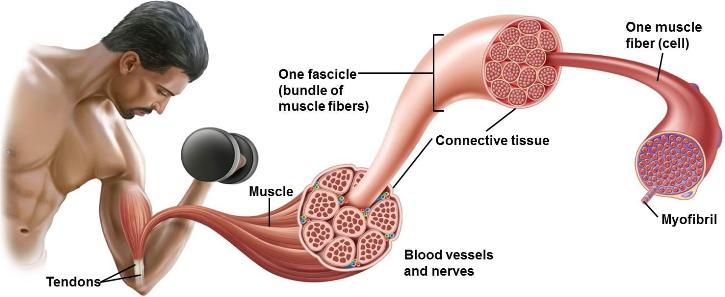‘Hitting the gym’, so to speak, can have many positive influences, both mentally and physically, on a man’s health. Cardiovascular exercise can reduce the storage fat deposits, reduce stress and can also assist with flushing out harmful toxins. Strength training to grow muscle has been linked with an increase in levels of testosterone in healthy males.
Testosterone, produced primarily in the testes, is the main male sex hormone, involved in key male attributes and developments which eventually assist in attracting ‘mates’. Low levels of testosterone are linked with low libido (sex-drive), reduced muscle strength/ endurance, and increased fatigue. Treatments of low testosterone include hormone replacement therapy, however, this does not assist in sperm production, just to counteract low libido and erectile dysfunction.
Testosterone plays a key role in the synthesis of protein, thus adding muscle mass following strenuous physical exercise. Resistance training causes small amounts of trauma to the muscle fibers (see image), prompting a repair response which makes the muscle stronger and larger. Testosterone plays two major roles in increasing protein synthesis in skeletal muscle. The hormone directly binds with receptors present on the surface of skeletal muscle cells and amplifies the repair signal, prompting increased muscle growth. Testosterone also increases levels of growth factor within the body, which in turn increases protein synthesis and therefore muscle size and strength.

(Image sourced from: http://www.medifitbiologicals.com/protein-synthesis-in-muscles/)
Strength training has been linked with an immediate increase in testosterone, although this isn’t usually long lasting. In particular, compound movements (exercises utilizing more than two muscle groups) such as squats, deadlifts, and bench press have been shown to naturally increase testosterone levels due to the incorporation of multi-joint exercise. This increase in testosterone therefore increases muscle growth as fore-mentioned above and also increases sperm production and libido.
Although resistance training and testosterone levels seem to go hand in hand with each other, as with many other aspects explored in this series of blogs, moderation is key. Adequate rest is needed and over-training can cause a spike in stress and therefore a plateau in testosterone levels. Sleep is vitally important to maintenance of healthy testosterone levels. Naturally, testosterone levels follow a circadian rhythm, which means that they peak in the morning and degrade as the day goes on. During the rapid eye movement (REM) stage of sleep, the endocrine system signals the Leydig cells to produce testosterone for the day ahead. Gradually, sleep disturbance can cause an increase in the stress hormone, cortisone, which has a detrimental effect on testosterone.
In conclusion, increasing muscle mass via regular strength training has been shown to increase testosterone, and therefore libido and sperm production. In addition to this, testosterone has been shown to increase muscle mass. Moderation of exercise and muscle growth is suggested, with plenty of rest and good quality sleep.
